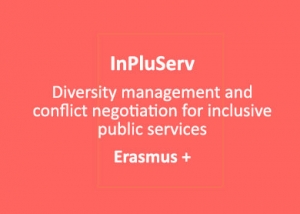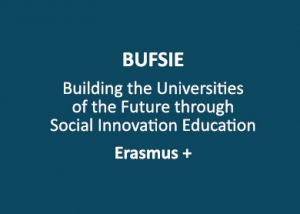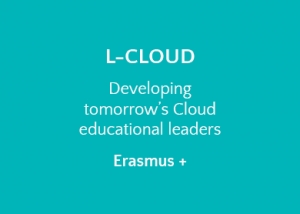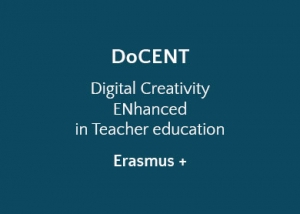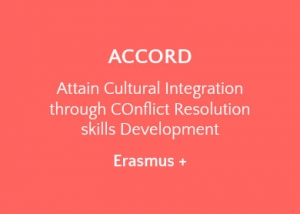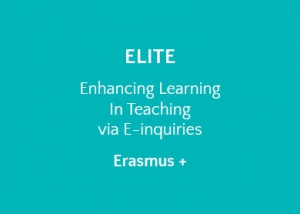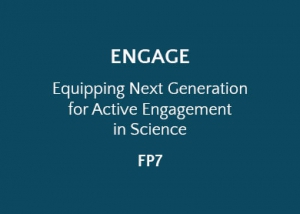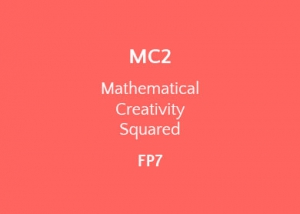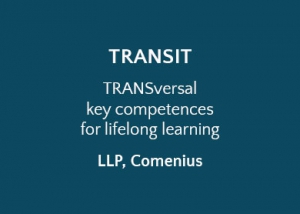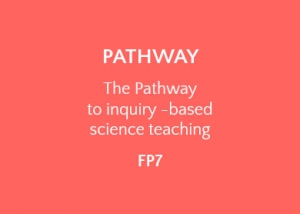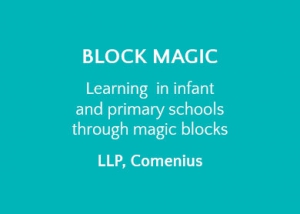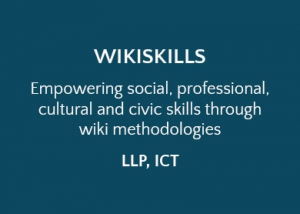Projects
We collaborate in educational projects from different European programs (Erasmus +, Horizon 2020), either in a coordinating or participating role.
Projects - 2000-05
PUENTE – Public Environments for Intergenerational Learning
PUENTE aimed to design intergenerational learning activities in public places, fostering meaningful social interactions and rewarding educational experiences both for adults and youngsters. We engaged together older people and youth in informal learning activities (e.g. leisure, recreation, art festivals, exhibitions, sports).
Duration: 2006-2008 (2 years)
Program: Socrates-Minerva
Coordinator: University of Sienna (Italy)
KALEIDOSCOPE – Network of Excellence
Concepts and methods for exploring the future of learning with digital technologies – was a Network of Excellence which brought together European teams in technology-enhanced learning. Its goal was to integrate 82 research units from around Europe, including a large range of expertise from technology to education, from academic to private research. Altogether, it constituted a community of more than 800 researchers in 23 countries, which joined in their efforts to develop new concepts and methods for exploring the future of learning with digital technologies.
Duration: 2004-07 (4 years)
Program: VI Framework Programme. Information Society Technologies
Coordinator: CNRS (France)
Visit website
Prema 2 – Promoting Equality in Maths Achievement
PREMA aimed at deepening understanding of the socio-cultural and pedagogical factors that impede girls’ achievement/performance in mathematics. The project was particularly concerned with the emergence of the digital divide. PREMA 2 built on the results of the PREMA project, making them more scalable and useful (in the form of a model curriculum framework) to teachers.
Duration: 2006-2007 (2 years)
Program: Lifelong Learning Programme
Coordinator: FORTH (Greece)
LA PIAZZA – Technology enhanced public spaces for intergenerational learning
The focus of La Piazza’s research perspective was on the impact that a holistic conception of technology enhanced learning public spaces, with tools and approaches promoting intergenerational learning, has on the acquisition of social competences, such as the development of self-identity, autonomy and sense of belonging to a community, both by youngsters and adults.
Duration: 2006-2007 (2 years)
Program: Kaleidoscope Call for Innovative Projects
Coordinator: University of Sienna (Italy)
FORMAT
FORMAT was a content-based Kaleidoscope Joint Activity. This action proposed a reconsideration of the concept of lesson plan in education and the way this affects how learning takes place. The final aim was to build a digital library of educational formats, analyzing their rationale and the way they affect how educational activities and settings are designed, in order to promote the development of new formats and the related enabling technologies.
Duration: 2006-2007 (2 years)
Program: Kaleidoscope Call for Innovative Projects
Coordinator: University of Sienna (Italy)
USERS’ GROUP
The Users’ Group aimed at enhancing dialogue and mutual understanding between the world of research represented by Kaleidoscope members and the world of users, and making decision-makers aware of potential negotiation pathways. In the context of the Users’ Group, the world of users is defined by practitioners in the education and training field, be they involved as parents in the context of the Home market, involved as part of the teaching profession or as learners in whatever context, or involved as human resources managers at Company level, or Initial or Higher education levels.
Duration: 2006-2007 (2 years)
Program: Lifelong Learning Programme
Coordinator: University of Sienna (Italy)
PREMA – Promoting Equality in Maths Achievement
PREMA aimed at the deepening of understanding of the socio-cultural and pedagogical factors that impede girls’ achievement/performance in mathematics which in turn effect women’s under-representation in areas of social and economic importance. This project was particularly concerned with the emergence of the digital divide which appears to be strongly linked to mathematics school performance.
Duration: 2005-2007 (2 years)
Program: SOCRATES – Observation, Analysis and Innovation
Coordinator: FORTH (Greece)
COLLAGE- Collaborative Learning Platform Using Game-like Enhancements
The project brought to secondary school students and their teachers a mobile learning platform for context-dependent games. Fun, interdisciplinarity, collaboration, and challenge beyond the four walls of the classroom created new learning opportunities. The COLLAGE platform supported the authoring and playing of a board-like game on a site of educational interest. The game was played with the aid of mobile learning technology (mainly mobile phones and PDA’s, and GPS technology) allowing direct communication among players situated on site or in the classroom.
Duration: 2005-2007 (2 years)
Program: e-Learning
Coordinator: EllinoGermaniki Agogi (Greece)
Visit website
NEMED- Network of Multigrade Education
NEMED was a transnational network supported by the Comenius 3 Action of the Socrates Programme of the EU. NEMED brought together educators and researchers from ten European countries, who shared an interest in researching, enhancing and supporting multigrade education in their countries and at the European level.
Duration: 2004-07 (4 years)
Program: SOCRATES Comenius
Coordinator: Aegean University (Greece)
Visit website
MIAPP – Multiple Intelligences application
MIAPP’s main goal was to increase e-learning effectiveness and users’ satisfaction, as well as to reduce school drop-out rates; the shift from technology to learner oriented solutions and the focus on human potential and abilities requires new cognitive approaches, such as Multiple Intelligences approaches, which have been successfully utilized in traditional education. In the course of the project a model for the application of MI in e-learning was developed, implemented and finally evaluated. The emphasis was on developing a model that could be cost-effectively implemented on the basis of existing solutions.
Duration: 2005-06 (2 years)
Program: Leonardo
Coordinator: University of Information Technology and Management (Poland)
MASSIVE – Modelling Advice and Support Services to Integrate Virtual Component in Higher Education
The aim of MASSIVE was to design a model of support services for European traditional universities to successfully implement the virtual component of teaching. We defined the conceptual model of virtualisation, identified good practices in the support services regarding university virtual components, explored the elements for transferability, as well as validated the approaches to develop new support services.
Duration: 2004-06 (3 years)
Program: e-Learning Action
Coordinator: University of Granada (Spain)
DELPHI: European Observatory of Emergent eLearning Practice
DELPHI was built on the concept that e-Learning and the implementation of e-Learning schemes can benefit from the research results generated by ICT-based innovation in education. The diverse nature of the results obtained via EU supported projects makes it difficult to transform results into research and policy orientation; therefore, the activity of DELPHI was an attempt to cluster, synthesize, analyze and then disseminate ICT-based research findings of socio-economic value. The central concerns of DELPHI were: learning/teaching issues; institutional perspectives on the introduction and scalability of innovation in learning contexts; and socio-cultural issues, including those of lifelong learning. DELPHI, through its investigative activity, aimed at the establishment of an Internet-based Observatory on e-Learning Innovation.
Duration: 2002-2004 (3 years)
Program: eLearning
Coordinator: University of Barcelona
Visit website
I-CURRICULUM – the knowledge and Information skills needed for living in the digital age
The objective of I Curriculum was to establish a European framework for defining information skills and a curriculum appropriate for living and learning in the digital age: to identify the key meta-skills and meta-knowledge needed for living in the digital age in detail; to explore digital tools and artifacts and pedagogical practices that could lead to the development of broad digital literacy; to develop a framework for the description of curricula in terms of the information/meta-knowledge they encompass; to develop curriculum in information technology that may have more appeal to young women; and to disseminate findings to policy makers, teachers and other educators, as well as the producers of digital resources.
Duration: 2002-2004 (3 years)
Program: Socrates-Minerva
Coordinator: FORTH (Greece)
Visit website
SEEKS: Learners Information Seeking Strategies in the Information Society
The Objective of the SEEKS project was the production of a transnationally validated taxonomy of ICT-related information-seeking behaviour (ISB) among learners in formal and informal distributed learning environments, a census mapping the transnational distribution of these behaviours and two sets of guidelines aimed at ODL system developers and tutors. The proposal was oriented to the Minerva goal of «Understanding Innovation» and also contributed to the goal of «Designing, developing and testing new methods and educational resources». The target group of users of the outputs encompassed: Course developers, teachers, pedagogues, information scientists, educational psychologists, market researchers, internet providers, and software developers.
Duration: 2001-03 (2 years)
Program: Socrates-Minerva
Coordinator: Manchester Metropolitan University, UK
Visit website
MERLIN: Monitoring and Evaluation of Research in Learning Innovations
The project MERLIN looked at establishing a framework for a European-wide discussion on the research done in learning mediated by ICT. By disseminating MERLIN outcomes, the researchers and practitioners together with the Commission and other interested parties, created synergies for promoting a wider knowledge-base in this area. The project allowed the educational community to access a pool of diverse scientific results on different technology-based learning innovations in Europe, and highlighted the social implications of ICT-based learning innovations in the educational systems for better understanding of the emergent knowledge society. MERLIN defined an instrument to identify trends, strengths and weaknesses in research done in the area of ICT-based learning innovations, while contributing to identification of socio-economic issues and needs for future research.
Duration: 2001-02 (2 years)
Program: V Framework Programme – Improving the socio-Economic Knowledge Base
Coordinator: University of Barcelona
Visit website
IVETTE: Implementation of Virtual Environments Training and Education
The central objective of the IVETTE project was to investigate the issues involved in the implementation of Virtual Learning Environments (VLE) in post-secondary educational public institutions, as well as in training institutions.
Duration: 1998-2000 (2 years)
Program: IV Framework Programme, Targeted Socio-Economic Research
Coordinator: University of Barcelona
Visit website
IVETTE Workshop – Implementation of Virtual Environments in Training and Education
With the aim of gathering a group of European specialists to share their opinions with those of IVETTE participants, the University of Barcelona organised the IVETTE Workshop. We were interested in the transformations that traditional Higher Education institutions need to undertake in the near future in order to adapt themselves to the lifelong learning paradigm. These changes need a holistic view and should take into consideration the areas IVETTE proposed for further discussion. The Workshop also provided policy recommendations to the European Commission.
Duration: 2000-01 (2 years)
Program: V Framework Programme – Human Potential and socio-Economic Knowledge Base
Coordinator: University of Barcelona
Visit website

